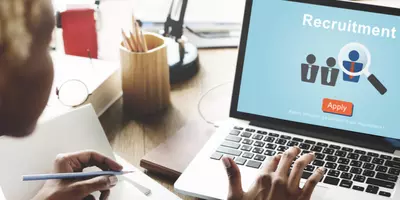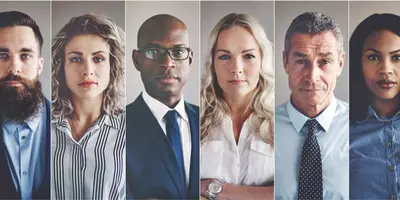
Dec 4, 2018 ● Michael Hoon
Can technology improve diversity in hiring?
Improving diversity in all aspects of our cultural and business environment is an ever-increasing concern in the twenty-first century. While certain strides have been made in ensuring that people of all genders, races, nationalities, religions, and orientations are better represented in our society, these efforts have only just begun. Hopefully, far greater strides are to come in our collective future. According to Jeanette Maister, the managing director, head of Americas at Oleeo, that hope may arrive in the form of artificial intelligence (AI).
Oleeo is a London-based company that provides solutions for companies looking to acquire new talent. Before joining Oleeo, Maister led recruiting efforts at such companies as Lehamn Brothers and Gartner, so she has a very firm background in hiring. In such roles, she has also witnessed the flaws in common hiring practices. Despite the desire of many companies to reflect society’s diversity more accurately in their hiring processes, many businesses just can’t seem to get with the times. They have no established processes for ensuring greater diversity. In fact, as Maister recently told SHRM Online, many companies are “still doubling down on the same approaches they have used since the 1960s.” She says that such half-hearted efforts are more about avoiding lawsuits than actually improving diversity. In many cases, these “efforts” to increase diversity are downright backward, as potential employers only consider whether or not applicants were sufficiently diverse after those applicants had been interviewed.
Maister sees technology as a possible solution to this problem. By using AI programs and Big Data to select the ideal person to fill a position, the biases of recruiters are less of an issue—these programs make automatic decisions based on myriad data points. It is essentially a computer-based form of blind screening, which is a hiring process that removes all identification information from an applicant’s application and resume. AI can focus only on skills and experience rather than factors such as name, age, and gender that could provoke bias.
Improving diversity in the workplace is not as easy as merely blocking out applicants’ personal information. It is a matter of ensuring that all phases of the hiring process are balanced and unbiased; it is also a matter of adjusting the language of job posts to be more inclusive, such as using gender-free pronouns in help-wanted ads. Some companies are already using technology that scans job descriptions for gender bias to help manage this issue. Algorithms and intelligent automation can also be used to cut the fat from job descriptions so that they only focus on the skills and duties essential to the given job. This will be a boon for women, who are more likely to ensure that they meet every criterion in a job description before applying than men are. In other words, by streamlining job descriptions, women will be more likely to apply to those positions.
Of course, to create a completely unbiased hiring process, the hiring technology itself must be free of bias. After all, these systems are programmed by human beings who come with their own baggage and may possess personal prejudices that can end up in the very programs intended to curb bias. Maister reveals that a solution to that potential problem is to make the selection compliance rates of the Equal Employment Opportunity Commission an essential part of the algorithm.
This is just the beginning of a new age in which technology is used to improve diversity in the workplace. New regulations will likely be set in place as the technology improves, and existing technology must be scrutinized to ensure that it utilizes sound data. Like all aspects of progress, improving diversity in hiring is a process, but hopefully the end result will be greater representation of all genders, races, nationalities, religions, and orientations in the workplace.


